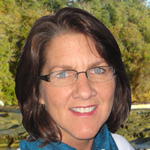“Everybody is I” … I read this phrase decades ago in the autobiography The Growing up Pains of Adrian Plass. It resonates even more deeply now as I attempt to be understanding of my mom’s skewed world. Her panic is rooted in dementia not reality, but it is not unfounded in her own mind and its effect is extremely challenging for me, the ‘I’ in my world.
I am a therapist but I never have it ALL together. I’m not sure this is a bad thing – not sure that as a client, I would want to be sitting across from a chair in which sits someone who has it easy or is able to cope with life’s stuff in an always level way. I will give my clients as much of 100% of my focus as I’m humanly able in our time. They deserve that. But there is this funny blurring of roles, this specialist title that might not be helpful in the long run.
This is my quandary today, after a workshop last night in which I ditched my notes (some of which were really good) and leaned towards us all just being together as fellow-strugglers with aging parents. I am the professional/therapist, but I am also part of ‘we’ and it’s a tricky business when I would rather be the ‘we’ than the specialist. Most of my time is pro bono, truth be told. Despite all the cautions about blurring lines, I blur the lines . Why? Because I love people and feel that all of us (including me) deserve to feel that we are actually NOT losing our minds; we just have a lot of things that are hard right now.
I listen to Dr Kristin Neff who has specialized in self-compassion and I think I deliver the same message, without the PhD. We need to talk kindly to ourselves. I can talk kindly to my friends and clients, but in the end I will replay the ‘loser’ moments in any conversation or workshop.
I wish I had been sharper last night, had shared the neurology stuff I do know. In the end, the eight of us connected in a good way, but my ego wishes I had been both warm AND smart. I am 54 with mid-life challenges: my mother has dementia and is so unhappy that every conversation consists of the same half-empty perseverations. Phone calls are becoming harder for me to make and more wearing when I hang up, especially as I have for many months felt flu-ish and outside my skin, and not just a little bit desperate. I know that something has to be addressed soon (Hormones? Anti-depressants? Tylenol?).
And this is not unlike my mom who feels like she can’t take another day of her world. There is a decline in her life that nobody can fix. Objectively, that might be the only difference (I at least have options at this point); SUBJECTIVELY, we both feel like things are spinning out of control and just want someone to help. I have no idea what to say to my mother. Last night’s workshop revealed to me that maybe there are two distinct sets of daughters/sons: those with aging (even dying) parents whom we still really like and will really miss; and those whose parents are not happy anymore, with no solutions. It is saddening and maddening at the same time and maybe we need a different support group for these.
Danger and Opportunity: that’s what the Chinese characters for Crisis equate to. The danger is in the slow “frog-in-hot-water” malaise and the edges of anger that are inevitable when a parent is not rational. The opportunity is in the realization that ‘Everybody is I’.
To quote further from Adrian Plass, “The true meaning of those three simple, but puzzling words had exploded into my mind, destroying the illusion that I was the centre of the universe, and leaving me to cope, for the rest of my life, with the burden of knowledge. Every one of those people down there in the street, walking the pavements, driving cars, waiting for buses—every single one, whatever they were, whatever they looked like, whatever I thought of them, were as important to themselves as I was to myself!”
Every one of us sees the world through our own lens, subjectively; and we may need a comrade almost more than we need a therapist. We need to feel as if we are not losing our minds.
 Cathy Sakiyama, M.Ed.
Cathy Sakiyama, M.Ed.
Website
See all articles by Cathy Sakiyama




I remember reading those very same words from Adrian Plass, in his autobiography, many years ago and, like you, they had a real impact on me…a young person living in Southend-on-Sea, England…they succinctly put-into-words what I had known since I was an 11 or 12 year old boy…that I was the only ‘me’ that there was, in life…but that everyone else was ‘me’ to themselves and just as important as a person, as I am. They’re not a bit-part player in the film of my life, they’re the star of their own. Today, I’m extremely interested and fascinated with other people and I thankfully put it down, partly, to these words by Adrian Plass!